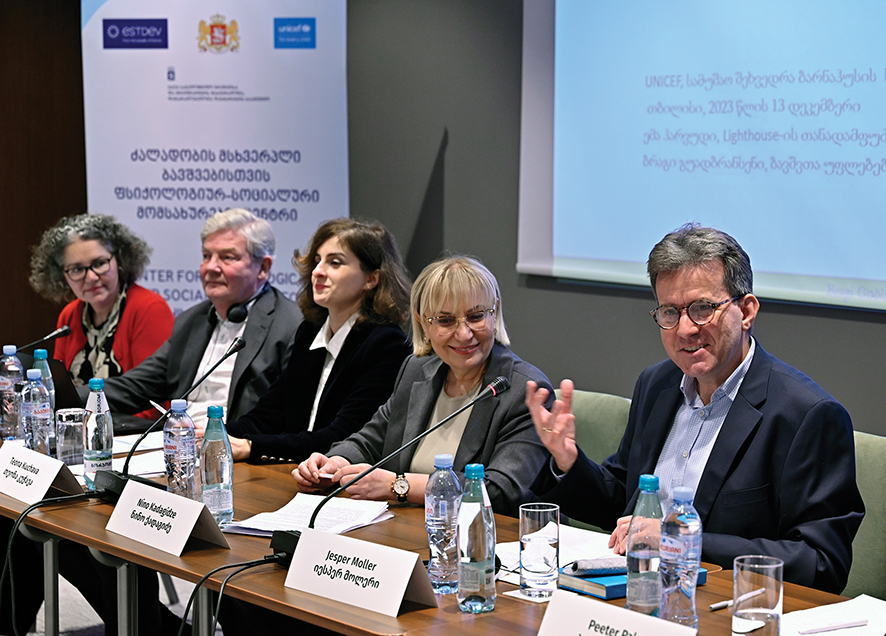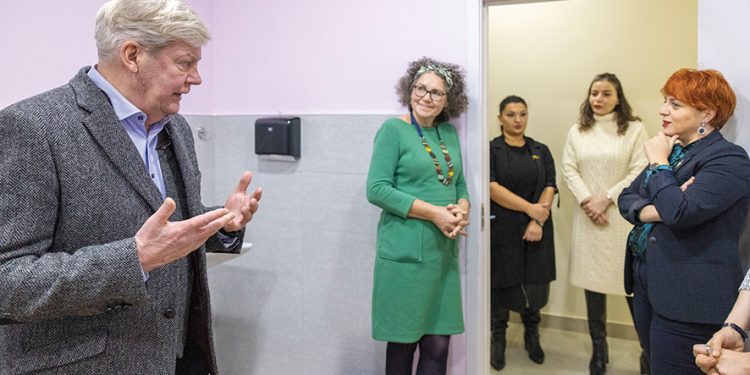UNICEF, with the Government of Georgia, supported by the Government of Estonia, has analyzed the work of the Center for Psychological and Social Services for Children Victims of Violence in Georgia and its support to children. This child-friendly, multidisciplinary model, launched by the Agency for State Care and Assistance for the Victims of Human Trafficking of the Ministry of the Internally Displaced Persons from the Occupied Territories, Labor, Health and Social Affairs with the support of UNICEF and the Government of Estonia, aims to protect children, victims of sexual violence, from re-traumatization and to bring investigative actions and rehabilitation programs into one space.
The Center is based on the famous “Barnahus” model, which originated in Iceland in 1998 and since has been replicated in most European countries. Other Government agencies involved in the development of the Center in Georgia include the Administration of the Government, Ministry of Internal Affairs, General Prosecutor’s office, Legal Aid Service and Levan Samkharauli National Forensics Bureau. The Court has a crucial role in supporting the establishment of common practice in line with the Barnahus standards. Since its opening in July 2022 the Center has supported up to 190 children, victims of sexual violence. The Government of Georgia committed to establish a second such center in Kutaisi for beneficiaries in the western part of the country by the end of 2024.
UNICEF continues to support the government in sharing best practices and identifying effective methods in relation to the work of the Centre. To further this endeavor, UNICEF has invited Bragi Gudbrandsson, renowned as the architect of the Barnahus model, and a Member of the UN Committee on the Rights of the Child, and Emma Harewood, co-founder of the first UK Barnahus, to support the government in further strengthening the Center.

During the visit, the experts will engage in a dialogue with Georgian government officials, civil society organizations, staff of the Center for Psychological and Social Services for Children Victims of Violence and other stakeholders. The primary objective of their visit is to review existing practices, discuss achievements and challenges, and propose effective solutions. Additionally, the experts will share insights from their extensive experience regarding the implementation of the Barnahus model in various countries.
“It has been a wonderful experience to learn about the achievements made to protect and support child victims of sexual abuse in Georgia. I have met dedicated and capable professionals here who are striving to do even better. We have shared the experience of Barnahus in many European countries with Georgian colleagues to help them to improve the justice system, child protection and health services and to better support children and their families,” Gudbrandsson says.
UNICEF continues working collaboratively with the Georgian government, civil society organizations, and other partners to create a safer and more supportive environment for children in the country.
Violence against children can have a lifelong impact on children’s lives. During the investigation of violence cases, children have to go through a long and stressful process at various institutions for interrogations, forensic, medical and other examinations. The evidence has shown that when this happens, it can be very traumatic for the child. This re-victimization can even have more harmful effects on the child than the abuse itself. The repeated interviews carried out by people that are not specifically trained in forensic interviewing are likely to distort the child’s account of events by suggestive questioning and have a detrimental effect on criminal investigations.














